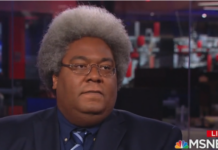The Supreme Court has made a decision that could have far-reaching consequences for employers who have diversity, equity, and inclusion (DEI) programs in place.
In a 9-0 ruling, the Court sided with a St. Louis Police Sergeant who claimed she had been discriminated against based on her gender. This ruling has been largely ignored, but it could have significant implications for businesses across the country.
Sgt. Jatonya Clayborn Muldrow sued the St. Louis Police Department after she was transferred from her role in the specialized Intelligence Division to a position where she was supervising neighborhood patrol officers. Despite her rank and pay remaining the same, Muldrow argued that this transfer was a result of discrimination because the new commander wanted to replace her with a man.
The Court’s decision stated that an employee does not have to show “significant” harm to make a case for discrimination, overturning a lower court’s ruling. This means that employees who feel they have been discriminated against based on their gender, race, religion, or national origin do not have to prove they have suffered a substantial loss. This could make it easier for women and minorities to sue their employers over alleged discrimination.
🚨 SUPREME COURT EASES DISCRIMINATION CLAIM THRESHOLD | DEI LOOPHOLE OPENED?
In a unanimous decision, the Supreme Court has lowered the burden for employees filing discrimination claims under Title VII.
The ruling in favor of St. Louis Police Sgt. Jatonya Clayborn Muldrow… pic.twitter.com/Zw19BYLG2O
— Mario Nawfal (@MarioNawfal) April 19, 2024
While some have celebrated this ruling as a victory for workplace equality, others have raised concerns that it could make it easier to bring lawsuits against businesses that have DEI programs in place. These programs, which aim to promote diversity and inclusivity in the workplace, have become increasingly popular among corporate employers. However, some critics argue that they give preferential treatment to certain groups and could now be seen as a form of discrimination under Title VII of the Civil Rights Act.
For example, LinkedIn’s “employee resource groups” provide training and mentoring programs for specific groups that are considered “systemically marginalized.” These programs could now be seen as providing “privileges of employment,” and any additional pay given to leaders of these groups could be seen as “compensation” under Title VII.
The ACLU, a major advocate for DEI programs, has dismissed these concerns as fearmongering. They argue that these programs aim to close the gap in opportunities among workers and do not disadvantage any particular group.
It remains to be seen how this decision will be interpreted and applied in future cases, but it is clear that it has sparked a heated debate about the impact of DEI programs in the workplace.







